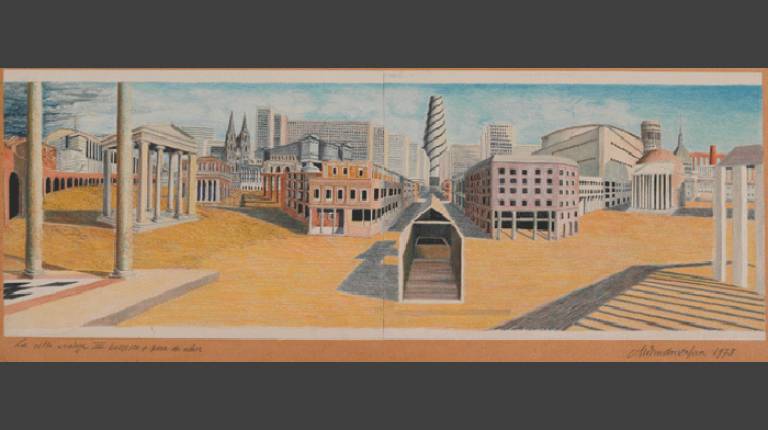
Overview
'Tendenza' is an equivocal term. It attempts to define a new movement, a collective of architects who invoke the memory and history of their discipline, which is in turn conceived as a scientific and autonomous domain. 'Tendenza' means 'tendency', a simple reorientation in order to refuse the notion of the avant-garde and utopia; in order to initiate a political and critical architecture engaging with the real.
This return to a trans-historical language that pertains to architecture, this recognition of 'postmodernism' as a global cultural phenomenon is condensed in the image of the Teatro del Mondo, this pavilion made of timber, a theatre floating on the Grand Canal and through the famous 1980 Venice Biennale of Architecture exhibition, titled La Strada Novissima, in the Corderie of the Arsenale.
After the 1979 publication of The Postmodern Condition by Jean-François Lyotard, the exhibition seemed to accompany the crisis of modernism, the depletion of the reductionist and purist discourses of an architectural rationalism inherited by the avant-gardes, in order to introduce a novel speculative gaze towards history. Developing as a veritable style by the Anglo-Saxon world, postmodernism became the object of every academic debate concerning aesthetics, politics, and sociologies of the contemporary world. It also left its trace in the artistic scene, by blurring the hierarchies between dominant and popular culture and by multiplying the references to history to a debauchery of signs and simulacra.
Accompanying the first retrospective exhibition dedicated exhaustively to La Tendenza (including a selection of more than 250 drawings, historical models, photographs, paintings, films, along with a rich documentation that retraces the strong moments of the movement), this catalogue offers novel perspectives to the European sources of a contemporary architecture that has enjoyed an unprecedented critical success over the last two decades. The precepts and concepts of this neo-rationalism have not stopped informing the more pressing debates on the city and the territory, especially in the shadow of the recent Grand Paris projects.
People
Frédéric Migayrou
View Frédéric's profile
Send Frédéric an email
 Close
Close

